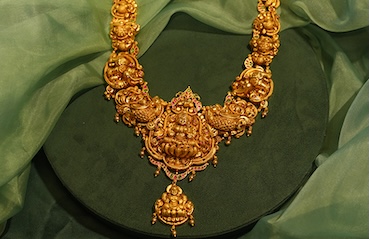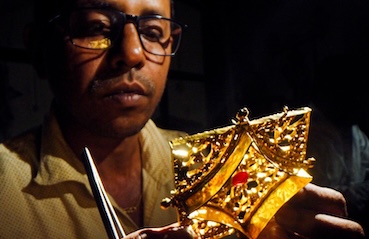Published: 12 Sep 2017
Alchemy and Gold: Indian alchemy in ancient times

Alchemy, an early, unscientific form of chemistry practiced in the Middle Ages with aims including turning base metals into gold. The history of Indian alchemy can be traced to the pre-Vedic period, dating back to Mohenjodaro and Harappa in Indus Valley Civilisations. Archaeological excavations by scientists through the years have brought to light evidence that shows how ancient Indians garnered their chemical knowledge as early as the pre-historic period.
Rasāyana, with the literal meaning, “path of essence” is the overarching Sanskrit term used in South Asian texts for “alchemy.” This word has found roots up to 10th century CE, and several centuries later, was used in early ayurvedic medicine to describe the science of lengthening lifespan or “rejuvenation therapy.”
In India, alchemy was started in an attempt to find a transmutation process to convert base metals into gold and later for the preparation of an elixir of life for imparting immortality, according to Rasāyana (Alchemy) by David Gordon White. Indian alchemy derived its colour and flavour to a large extent from the Tantric cult. Eventually, a number of combinations and preparations of mercury and other metals were evolved as helpful accessories in medicine.
Early alchemists, especially of Tamil Nadu, had the ability to differentiate between the transmuted ‘gold’ and the real one. According to Transmutation: Ancient Indian Concepts and Practices by B. V. Subbarayappa, Indira Gandhi National Centre for Arts, New Delhi, the Tamil text, Amudakalaijnanam by Agastya, clearly identifies that “if the artificial ‘gold’ and the natural gold are separately subjected to prolonged heating or calcination, the former gives out ashes and the real face of the metal appears, while the pure gold remains unaffected by this method.”
Working from previously unexplored sources on history and alchemy, White’s book highlights for the first time that the medieval disciplines of Hindu alchemy and hatha yoga was practiced by the same people. He spoke of Nagarjunacharya, a Buddhist monk who, in ancient times, ran the great university of Nagarjuna Sagara that studied alchemy. It was Nagarjunacharya who was believed to have developed a method to convert mercury into gold.
In fact, there are plenty of references in ancient Indian texts to this kind of alchemy. Researchers say that if alchemy indeed occurred, they'd be a type of low-energy nuclear reaction, popularly called cold fusion.











